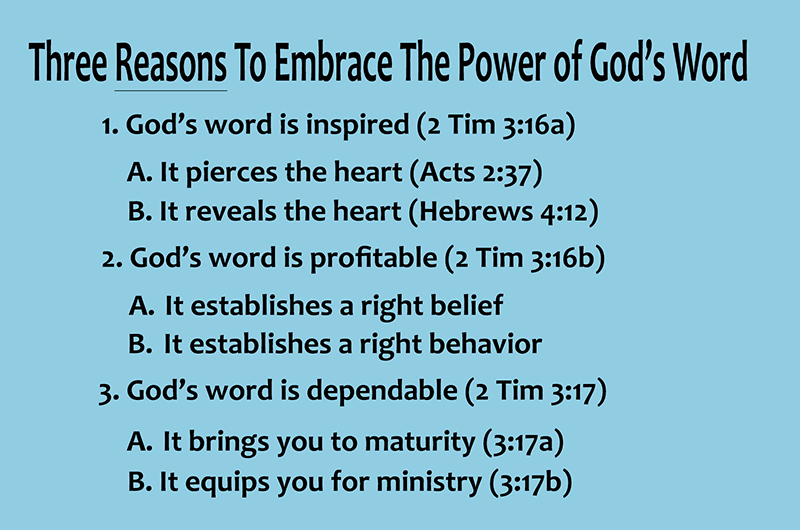How To Preach A Sermon For Beginners? In this brief article, I want to expand and explain this subject in three parts: where I started, where you need to start and where to from there.

How To Preach A Sermon For Beginners?
1. Where I Started
The first time I preached was disastrous. I was in my first year of seminary and I was given an opportunity to preach a message in my home church. I had three months to prepare the sermon.
I studied the passage of Scripture thoroughly and arranged the biblical information into an outline. I put content to the sermon outline with illustrations and application. I wrote the introduction and conclusion. I practiced the sermon several times. I even preached it in the empty church the night before.
The day came for me to preach the message. My family came to the church service expressly to hear my first official sermon being preached since entering seminary. I preached the message in the allotted time but it was a disaster.
Why was my first preaching assignment a disaster? In reflection, my expectations were far too high. I wanted to be this dynamic preacher, this seasoned and mature expositor of God’s word. The experience affected me to the point that I would not preach or try to preach another message until a year later.
The second time I preached was more enjoyable. Instead of thinking too highly of myself (this seasoned or mature preacher), I simply was myself. I did the same things as before. I studied the passage of Scripture and arranged the information into a sermon outline with illustrations and application. I practiced the sermon several times.
When the day came to preach, I just preached the sermon within my limited experience. I didn’t try to be flashy. I didn’t try to be someone else. I didn’t try to be this dynamic preacher. I just preached the Word of God within my limits. Was the sermon great? Put it this way, it was a much better experience and I enjoyed the opportunity.
Twelve months into my preaching ministry I started to feel more comfortable in the pulpit even though I was still learning and formulating the processes of sermon preparation and presentation.
I was preaching two to three sermons per week. This taught me study disciplines and habits that have stayed with me over nearly thirty years of preaching weekly sermons.
Why tell you my story? I tell you my story because it is important not to set your expectations too high when you begin preaching. Preaching develops the more you preach–your study disciplines and habits develop, your sermon preparation and structure develops and your sermon presentation develops. I am not the preacher I was thirty years ago. And yet, I am still learning the process of sermon preparation and structure. I am still reading books about how to improve your preaching.
2. Where You Need To Start
You start by finding an experienced mentor. You need to find someone who will walk with you through the whole process from sermon preparation and presentation, someone who will review your preparation work, someone who you will feel comfortable preaching the sermon to before you actually preach it in the church service and someone who you will be willing to accept feedback from.
I teach hermeneutics and homiletics to students but when it comes to potential preachers in my congregation, I walk with them through the whole process of preparation and presentation.
I sit down with them and get them to explain to me the passage that they are going to preach and how they are going to organise the information into a sermon outline. I sit down with them again, usually a week or so later, to review their sermon outline and how they will introduce the topic and how they will illustrate and apply their sermon points and how they will conclude the message.
A week or so later I get them to preach it to me. I sit down with them and we discuss every aspect of the presentation. I give honest feedback and we look at changes and different ways to apply, illustrate or present. They may preach it to me two or three times before they feel comfortable. After they actually preach the message in the church, I sit down with them again and I give them feedback. I tend to be positive in feedback rather than negative but I am always honest with them and they appreciate that.
You start by studying a passage of Scripture. I always encourage beginners to preach a passage of Scripture or a verse of Scripture that they know very well. This brings confidence to your preparation and presentation and the people will see it in your delivery.
You start by looking for the key concepts and how they relate to each other. Let me give you an example from 2 Timothy 3:16-17. There are three key concepts in this passage of Scripture and they convey three powerful truths. First, God’s word is inspired (3:16a). Second, God’s word is profitable (3:16b). Third, God’s word is dependable (3:17).
Let me give you another example from John 3:16. There are three key concepts in this verse of Scripture also. There is the greatness of God’s love (3:16a). There is the greatness of God’s sacrifice (3:16b) and there is the greatness of God’s promise (3:16c).
Let me give you one more example from Hebrews 4:14-16. There are three major concepts in this passage of Scripture. Jesus is our great high-priest (4:14). Jesus is our sympathetic high-priest (4:15) and Jesus is our merciful and gracious high-priest (4:16).
When you study the passage of Scripture or the verse of Scripture, look for the key concepts and how they relate to each other. This will help you organize the sermon outline.
You start by organizing the biblical information into a sermon outline. The sermon has three parts – the introduction, the sermon body and the conclusion.
This is not easy for beginners. This is why you need your mentor to help you through this process of organizing the biblical information into a sermon outline.
The sermon outline organizes the topic or main preaching point of your sermon, the sub-points and incident points of your sermon outline.
Here is my preaching sermon outline for 2 Timothy 3:16-17.
Introduction:
There are Three REASONS to Embrace the Power of God’s Word.
1. God’s word is inspired (2 Timothy 3:16a)
- It pierces the heart (Acts 2:37)
- It reveals the heart (Hebrews 4:12)
2. God’s word is profitable (2 Timothy 3:16b)
- It establishes a right belief
- It establishes a right behaviour
3. God’s word is dependable (2 Timothy 3:17)
- It brings you to maturity (2 Timothy 3:17a)
- It equips you for ministry (2 Timothy 3:17b)
Once you have organized the sermon outline, you need to write content to the sermon outline with illustrations and application. Then write the introduction and the conclusion.

You start by getting your mentor involved in this whole process. Sit down with your mentor and arrange times to meet over a month so that you can share together as you progress from preparation to presentation. I suggest that you meet three times with your mentor before you preach and once after you preach the message in the church service.
The first meeting should be after you have studied the passage of Scripture or verse of Scripture. The second meeting should take place when you have organized the biblical information into a sermon outline and manuscript. The third meeting should take place when you are ready to preach it to your mentor. You may be hesitant to preach it to your mentor. It can be very daunting and artificial. Nevertheless, the people that I have taken through this process have found it very rewarding. The fourth meeting should take place after you preached the message. I usually have lunch with the person and we talk over the experience with honest feedback.
These times with your mentor will help you improve and perfect the message you are going to preach. This is your first time and your mentor has done this many times so listen to your mentor and learn from your mentor.
The key area that your mentor will need to guide you through is the transitions. This is generally the most troublesome for beginners.
Let me give you an example from the sermon outline on 2 Timothy 3:16-17. The transition is from sub-point one (God’s word is inspired) to incidental points one and two. This is a short excerpt from my preaching notes.
God’s word is inspired. But how is God’s word inspired? In what ways are God’s word inspired? Let me give you just two ways! The first way is that it cuts to the hearts. When the apostle Peter preached his first sermon at Pentecost, his words cut to their hearts (see Acts 2:37). His words pierced theirs hearts and convicted them of their sins. What was their response? They asked Peter what they needed to do and he told them (see Acts 3:38-41).
The second way that God’s word is inspired is that it reveals the heart. Look at Hebrews 4:12, it says that “the word of God is living and powerful, and sharper than any two-edged sword, piercing even to the division of soul and spirit, and of joints and marrow, and is a discerner of the thoughts and intents of the heart.” God’s word is not just ink on a page. It is living and powerful. It reveals your thoughts. It reveals the intents of your heart.
This is the transitional sentence. God’s word is inspired. But how is God’s word inspired? In what ways are God’s word inspired? Let me give you just two ways! The first way… The second way…
When you transition in this way, there is natural flow or progression and the people are able to follow that progression. Work hard at getting the transitions right and your sermon will flow naturally and the people will stay with you as you progress through your message.
3 Where To From Here
You need to take time to refresh your mind. You need to finish the sermon manuscript at least two days before you preach it in the church service. I make it a point to be free for Friday night and Saturdays. I usually spend time with family or watch a sport that interests me at the time. On Saturday I do some odd jobs in the garden or mow the lawn. I find this relaxing and refreshing. I don’t think too much about the sermon until Saturday night.
You need to take time to mark up and review the manuscript. I do this on Saturday night from 7pm to 9pm. I go through the manuscript with a fine-tooth comb so that I am very familiar with the flow and progression of the sermon. This time helps me to internalize the text of Scripture and the sermon notes.
You need to take time to pray through the manuscript. I do this on Sunday morning and Sunday afternoon before the services. I put aside about one hour to pray through the manuscript in order to make sure that my mind is clear and concise. I seek the Holy Spirit’s guidance so that I can deliver the sermon with passion and purpose. I ask God to use my voice and mannerisms to bring the message alive so that the people can experience the power of God’s word in their lives.
You need to take time to know your mannerisms. Ralph Waldo Emerson said, “Fear defeats more people than any other one thing in the world.” When you walk up into the pulpit, you will need to be aware of the fear factor and how it will affect your mannerisms – your voice, your gestures, your movement and your face and eye expressions.
Beware of your voice! You can use the volume of your voice (loud/soft), the pitch of your voice (high/low) or the rate of your voice (fast/slow) to get your point across. It is better to be loud than soft. People need to hear you!
Beware of your gestures! You can use your hands and arms with great effect on your audience. When you talk about something being minuscule, use your hands to show them. If you talk about the majesty of God, use your hands and arms to show them the greatest of God.

Beware of your movement! You can use movement from side to side of the pulpit to keep your audience connected to what you are teaching them. Moving out of the pulpit gets people’s attention.
Beware of your eyes and face expressions! You can keep your audience’s attention with your eyes and face expressions. You need to constantly look at your audience. They want to see your face. You need to also use face expressions. Don’t over do it though! WOW, do people still believe that!” This is a sentence that you can use your face expressions to convey your message.
Some Final Remarks
Preaching is a calling and a privilege and when you are given the opportunity, ask God to help you to do your best in light of your experience. We do it best when we prepare well.
Some Resources For How To Preach A Sermon For Beginners
Living by the Book by Howard Hendricks – Available From Amazon
Preaching that Connects by Mark Galli and Craig Larson – Available From Amazon
Preaching With Passion by Alex Montoya – Available From Amazon
How to Preach Without Notes by Charles W Koller – Available From Amazon
Teaching To Change Lives by Howard Hendricks – Available From Amazon